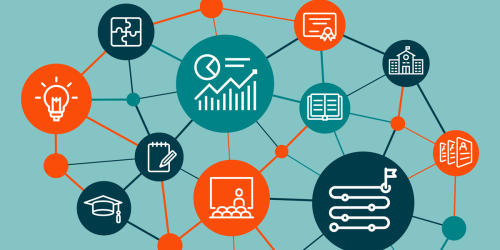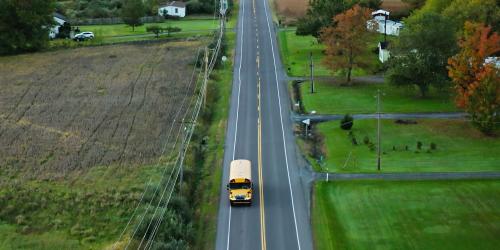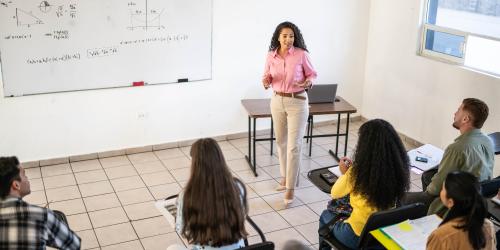Placing students into small groups can be a powerful approach to stimulate learning. This resource serves educators looking to improve classroom instruction through small-group student learning.
Intermediary organizations that serve as the backbone of an education network can be integral to a network’s success. Use this checklist to assess whether a potential intermediary partner can fulfill the core capacities to your emerging network.
When forming a professional learning network, how do you ensure your efforts are meaningful and sustainable? This resource will help you start your network with a clear purpose and solid direction.
What does a high-performing education network look like, and what steps can emerging networks take to get there?
This brief provides educators with the background, rationale and evidence for implementing an uninterrupted, 90-minute literacy block as part of a comprehensive approach to teaching reading in elementary schools.
"Changing the Conversation,” a new study from Education Northwest, looks at Highline Public Schools’ participation in the Road Map Project.
This brief outlines steps district and school leaders can take to expand science, technology, engineering and mathematics opportunities for students through school-community partnerships.
Findings show that completing developmental education courses in reading and writing leads to an increase in earnings, suggesting that developmental education English credits may improve individuals’ employability.
Creating and enforcing a clear and equitable discipline policy plays an important role in ensuring that all students are afforded the opportunity to reach their full potential.
Our always-on digital world presents both the greatest challenge and the greatest opportunity to reframe what learning can and should look like today.
The use of research and data in decision making has become a popular mantra in education circles, but putting it into practice presents some real challenges
School leadership is complex and requires wisdom, informed judgment, and choosing among multiple options. Should leaders push for fast results or incremental improvements over time?
According to the National Conference of State Legislatures, 21 states have districts operating on a four-day schedule.
There’s growing recognition that communities of practice—peer-to-peer learning groups—offer an effective way to work together on a common problem, share strategies, and deepen members’ knowledge.
What truly characterizes a professional learning community? And, more important, How can PLCs improve teacher practice and student learning?















